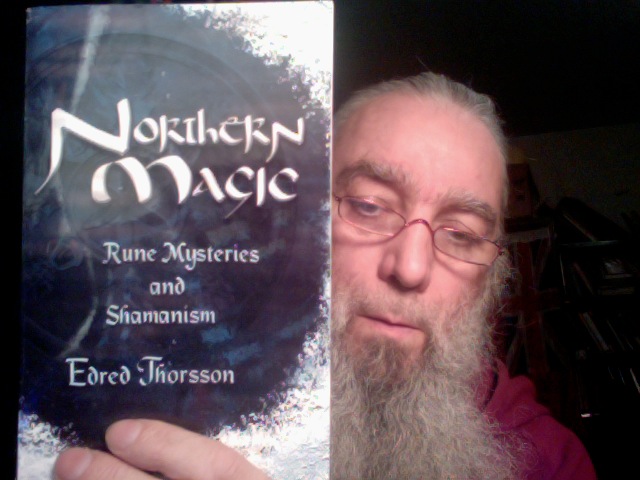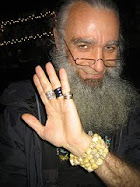 |
AAk found this Book one of Thorsson’s more “Poetic” Books. Maybe because it deals with da Younger Futhark which was da Futhark that Thorsson was first inspired with until he focused on dæ Elder Futhark & later da “Left Hand Path”.
This Book covers many Subjects. What AAk found most interesting was his Chapters on “Operant Hexology” & “The Germanic Role in the Western Tradition”.
EXCERPTS with Coloring, Links & Pages added.
THE TEUTONS TODAY
From ancient times the Teutons have been known as a group of people who speak the Germanic group of languages. Some prefer the term "Teutonic" over "Germanic" to avoid the confusion between the words "Germanic" and "German." But in reality the terms "Teutonic" and "German" mean the same thing. The "Gothic" has even been applied to the whole of the Germanic realm, although this too originally referred to only one branch of the Germanic family. Today any of these three terms, Germanic, Teutonic, or Gothic, may refer to the overall tradition of this original group.The (p.1) English, German, Dutch, Icelandic, Danish, Norwegians, and Swedish peoples are all directly descended from this ancient Germanic cultural stock. It is also important so realize that they left their indelible mark on the cultures of the French, Spanish, and Italian nations, as they founded the first true states in those lands after the fall of the Roman Empire.
The Ostrogoths and Longobards (in Lombardy, northern Italy) founded early medieval kingdoms in Italy. The Visigoths formed kingdoms in southern France and in Spain. There was also on early Swabian kingdom in Spain. The region in southern Spain known as Andalusia is derived from the name of the Germanic people who set up medieval kingdom there, the Vandals. (The original name was Vandalusia.) The Franks eventually settled in what is now northern France and it is from the name of this tribe that the name of the country is derived. In all of these instances the Germanic tribes gave a sense of national identity to the regions in question after the destruction of the Roman Empire.
The Teutons not only had a tradition of religion and mythology unique to themselves, although closely related to their other Indo-European, brethren (Celts, Slavs, Romans, Greeks, Persians, and Indians), bot they also had a unique magical system which has survived in various forms most notably rune magic. (p.2)
(Edred Thorsson's Northern Magic: Rune Mysteries and Shamanism by Llewellyn Publications c1992/1998, ISBN 978-1-56718-709-0)
Latest Edition at Amazon

No comments:
Post a Comment